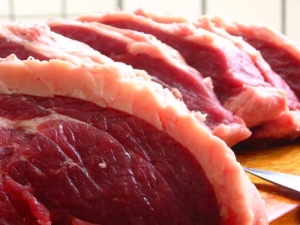Birth woes
OPINION: What does the birth rate in China have to do with stock trading? Just ask a2 Milk Company.
 Chinese scientists have signed a deal to set up a commercial animal cloning centre in the northern port city of Tianjin.
Chinese scientists have signed a deal to set up a commercial animal cloning centre in the northern port city of Tianjin.
Chinese scientists have signed a deal to set up a commercial animal cloning centre in the northern port city of Tianjin.
It will produce 100,000 beef cattle embryos initially, increasing to one million.
The plant in the Tianjin Economic and Technological Development Area (TEDA), a government-sponsored business development park, will also clone sniffer and pet dogs and racehorses. Its main building is now being built and is due to open in the first half of 2016.
Sinica, a subsidiary of Boyalife Group, which focuses on stem cell and regenerative medicine, signed the agreement with the TEDA this month.
Chinese farmers are struggling to produce enough beef cattle to meet market demand, said Xu Xiaochun, board chairman of Boyalife Group.
Scientists have cloned mice, cattle and other animals since the world's first cloned sheep, Dolly, was born on July 5, 1996 in Britain. Since 2000, Chinese scientists have cloned sheep, cattle and pigs.
China's first cloning company was set up in September 2014 in the eastern Shandong Province, first birthing three pure-blood Tibetan mastiff puppies. The firm is a joint venture between Boyalife and Sooam Biotech.
Until then cloning in China had been limited to scientific research.
The Meat Industry Association of New Zealand (MIA) today announced that Chief Executive Officer Sirma Karapeeva has resigned from the role.
The winners of the 2026 Hawke’s Bay/Wairarapa Dairy Industry Awards were announced at the annual awards dinner held at Copthorne Solway Park in Masterton on Thursday evening.
Environment Southland is welcoming this week’s decision by the Environmental Protection Authority (EPA) to approve the release of Blaptea elguetai, a leaf‑feeding beetle that will help control the highly invasive Chilean flame creeper.
This March, the potato industry is proudly celebrating International Women’s Day on 8 March alongside the International Year of the Woman Farmer, recognising the vital role women play across every part of the sector — from paddocks and packhouses to research, leadership, and innovation.
Fruit trader Seeka posted a record profit and returns to shareholders in 2025.
Recent weather events in the Bay of Plenty, Gisborne/Tairawhiti, and Canterbury have been declared a medium-scale adverse event.

OPINION: A mate of yours truly reckons rural Manawatu families are the latest to suffer under what he calls the…
OPINION: If old Winston Peters thinks building trade relations with new nations, such as India, isn't a necessary investment in…